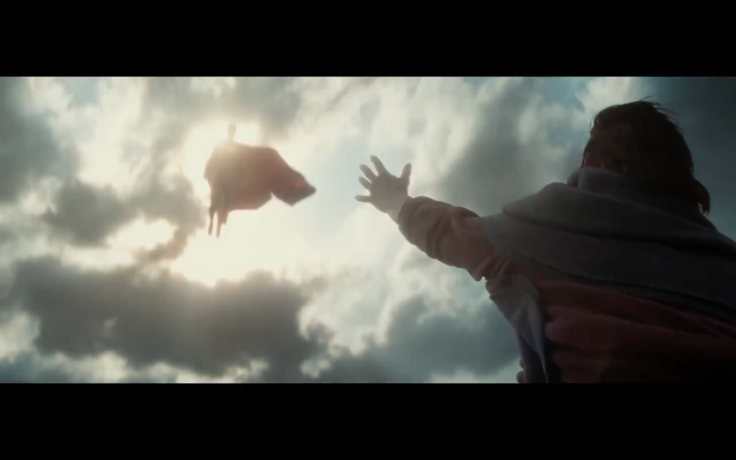The latest promo photo for the upcoming Justice League sees the Last Son of Krypton finally join his golden age compatriots, confirming his place as one of the six pitched by the films maudlin slugline. Sorry friends, but it appears as though the ambiguous figure silhouetted at the end of the second Justice League trailer isn’t Hal Jordan, or Supergirl, or Comet the Super-Horse or whoever your certifiable theory proposed it was, but was almost certainly a tease to the return of the Man of Steel. This should come as a shock to no one, not that it was ever intended to, as Snyder has made no illusions about the resurrection of Clark appearing in the film, going so far as to top Batman V. Superman off with a shot of the icon’s trembling tombstone.
There are many things that give me cause to worry about the execution of Superman in the Justice League, not the least of which is the rumour that deemed the pre-Whedon cut of the film "unwatchable," but none quite as pressing as the amplification of the messiah parallels. Heedless of my own disparaging history with theology, I simply don’t find the Jesus analogue as compelling as most Superman scribes do. In fact, I believe it is often times utilized as a method of avoiding the inflated Superman dilemma. It’s this false notion that an all-powerful being can only be relatable through self-sacrifice.
It may be the genre’s most enduring trope, both in the comics and cinematically. It has worked quite often. But in my personal experience, sifting through the endless “wealth” of nerd literature, the Messiah complex is a plot device that grew stale pretty quickly. The concept of vicarious redemption as applied to literary heroism is sort of counter intuitive. An interesting superhero isn’t a sentry of morality or piety, but a flawed individual that decides to take up the mantle in spite of those shortcomings – it’s how we see the best of ourselves in them. Drawing parallels between heroes and gods only muddles the message. What makes Superman so singular is that his resilient ethical center is evolved completely by his own volition. It isn’t dictated by tragedy or some sort of divine purpose. To imply that Kal-El was sent to Earth to both protect and absolve us from ourselves by way of dialogue, imagery or any other means, guts the integral motif of the character.
The ineffective nature of this narrative device can be found at its most tactless in Sam Raimi’s Spider-man 2. The theme igniting the charm of its story is one regarding the distinctly human plight of its hero, Peter Parker. Initially, this is accented beautifully by the famous train sequence, a scene that heightens the balancing act the character has become iconic for. The problem lies with the scene’s ending. Physically exerted and unmasked, Peter passes out and is lifted, arms splayed open, by the grateful denizens occupying the subway car that would’ve toppled into the ocean had it not been for his act of self-sacrificial heroism.
Though he doesn’t physically die, most would agree the idea of martyrdom is undoubtedly at play here. It feels obligatory. Christianity is so ingrained into our country’s fibers, we feel our modern myths owe it a perpetual citation. This should no longer be the case. As our culture develops more and more into a secular one, our literature should begin to reflect that. That isn’t to say we should extinguish the echoes of theology clean from our fiction, I mean to say we should no longer feel beholden to it.
I’m willing to constrain myself from extrapolating my concerns in this regard on Joss Whedon, who has proven to be a filmmaker with an ear for subtlety, but I imagine the resurrection element can’t help but coax a Jesus similitude. I’d caution against it; deism isn’t heroic.


















